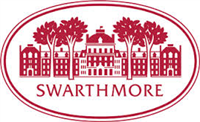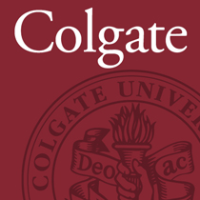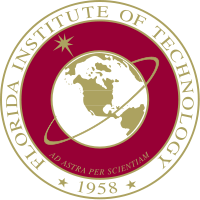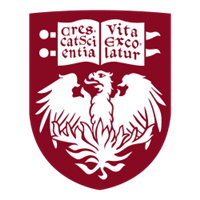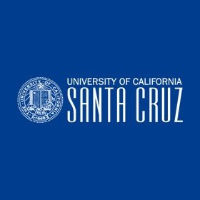What do they do?
Observe, research, and interpret astronomical phenomena to increase basic knowledge or apply such information to practical problems.
Also known as:
Astronomer, Astrophysicist, Data Scientist, Research Scientist, Scientist
-
4.8%
Change
Select a state to see its job growth rate ranking200Job Openings
Select a state to see its net job growth ranking
-
Swarthmore College
Swarthmore, PA
-
Florida Institute of Technology
Melbourne, FL
-
Colgate University
Hamilton, NY
-
University of Chicago
Chicago, IL
-
University of California-Santa Cruz
Santa Cruz, CA
Looking for colleges that offer a specific major? Use the College Match Tool to find your best-matched schools and discover your estimated Net Price!
- Doctorate or Professional Degree (54%)
- Master's degree (22%)
- Bachelor's degree (23%)
- Associate's degree (<1%)
- Some college, no degree (<1%)
- High school diploma equivalent (<1%)
- Less than high school diploma (<1%)
Most Popular Majors that prepare Astronomers
-
#1
-
Degrees Granted
445
-
Female Students
187
-
Male Students
258
-
Median Starting Salary
$51,867
-
-
#2
-
Degrees Granted
328
-
Female Students
146
-
Male Students
182
-
Median Starting Salary
$51,867
-
-
#3
-
Degrees Granted
75
-
Female Students
36
-
Male Students
39
-
Median Starting Salary
$51,867
-
-
#4
-
Degrees Granted
10
-
Female Students
4
-
Male Students
6
-
Median Starting Salary
$51,867
-
People in this career often have these skills:
- Reading Comprehension - Understanding written sentences and paragraphs in work-related documents.
- Science - Using scientific rules and methods to solve problems.
- Critical Thinking - Using logic and reasoning to identify the strengths and weaknesses of alternative solutions, conclusions, or approaches to problems.
- Active Listening - Giving full attention to what other people are saying, taking time to understand the points being made, asking questions as appropriate, and not interrupting at inappropriate times.
- Writing - Communicating effectively in writing as appropriate for the needs of the audience.
- Mathematics - Using mathematics to solve problems.
- Active Learning - Understanding the implications of new information for both current and future problem-solving and decision-making.
- Speaking - Talking to others to convey information effectively.
- Judgment and Decision Making - Considering the relative costs and benefits of potential actions to choose the most appropriate one.
- Learning Strategies - Selecting and using training/instructional methods and procedures appropriate for the situation when learning or teaching new things.
- Monitoring - Monitoring/Assessing performance of yourself, other individuals, or organizations to make improvements or take corrective action.
People in this career often know a lot about:
- Mathematics - Knowledge of arithmetic, algebra, geometry, calculus, statistics, and their applications.
- Physics - Knowledge and prediction of physical principles, laws, their interrelationships, and applications to understanding fluid, material, and atmospheric dynamics, and mechanical, electrical, atomic and sub-atomic structures and processes.
- Computers and Electronics - Knowledge of circuit boards, processors, chips, electronic equipment, and computer hardware and software, including applications and programming.
- English Language - Knowledge of the structure and content of the English language including the meaning and spelling of words, rules of composition, and grammar.
- Engineering and Technology - Knowledge of the practical application of engineering science and technology. This includes applying principles, techniques, procedures, and equipment to the design and production of various goods and services.
- Education and Training - Knowledge of principles and methods for curriculum and training design, teaching and instruction for individuals and groups, and the measurement of training effects.
People in this career often have talent in:
- Oral Expression - The ability to communicate information and ideas in speaking so others will understand.
- Deductive Reasoning - The ability to apply general rules to specific problems to produce answers that make sense.
- Inductive Reasoning - The ability to combine pieces of information to form general rules or conclusions (includes finding a relationship among seemingly unrelated events).
- Mathematical Reasoning - The ability to choose the right mathematical methods or formulas to solve a problem.
- Oral Comprehension - The ability to listen to and understand information and ideas presented through spoken words and sentences.
- Written Comprehension - The ability to read and understand information and ideas presented in writing.
- Written Expression - The ability to communicate information and ideas in writing so others will understand.
- Information Ordering - The ability to arrange things or actions in a certain order or pattern according to a specific rule or set of rules (e.g., patterns of numbers, letters, words, pictures, mathematical operations).
- Number Facility - The ability to add, subtract, multiply, or divide quickly and correctly.
- Near Vision - The ability to see details at close range (within a few feet of the observer).
- Flexibility of Closure - The ability to identify or detect a known pattern (a figure, object, word, or sound) that is hidden in other distracting material.
- Speech Clarity - The ability to speak clearly so others can understand you.
- Originality - The ability to come up with unusual or clever ideas about a given topic or situation, or to develop creative ways to solve a problem.
- Problem Sensitivity - The ability to tell when something is wrong or is likely to go wrong. It does not involve solving the problem, only recognizing that there is a problem.
- Selective Attention - The ability to concentrate on a task over a period of time without being distracted.
- Far Vision - The ability to see details at a distance.
- Fluency of Ideas - The ability to come up with a number of ideas about a topic (the number of ideas is important, not their quality, correctness, or creativity).
- Speech Recognition - The ability to identify and understand the speech of another person.
People in this career often do these activities:
- Support the professional development of others.
- Advise students on academic or career matters.
- Prepare scientific or technical reports or presentations.
- Collaborate on research activities with scientists or technical specialists.
- Analyze operational or research data.
- Direct scientific activities.
- Supervise student research or internship work.
- Prepare proposals or grant applications to obtain project funding.
- Instruct college students in physical or life sciences.
- Measure environmental characteristics.
- Measure radiation levels.
- Develop software or applications for scientific or technical use.
- Review professional literature to maintain professional knowledge.
- Develop theories or models of physical phenomena.
- Serve on institutional or departmental committees.
- Provide technical information or assistance to public.
This page includes data from:

 Occupation statistics: USDOL U.S. Bureau of Labor Statistics Occupational Employment Statistics
Occupation statistics: USDOL U.S. Bureau of Labor Statistics Occupational Employment Statistics


